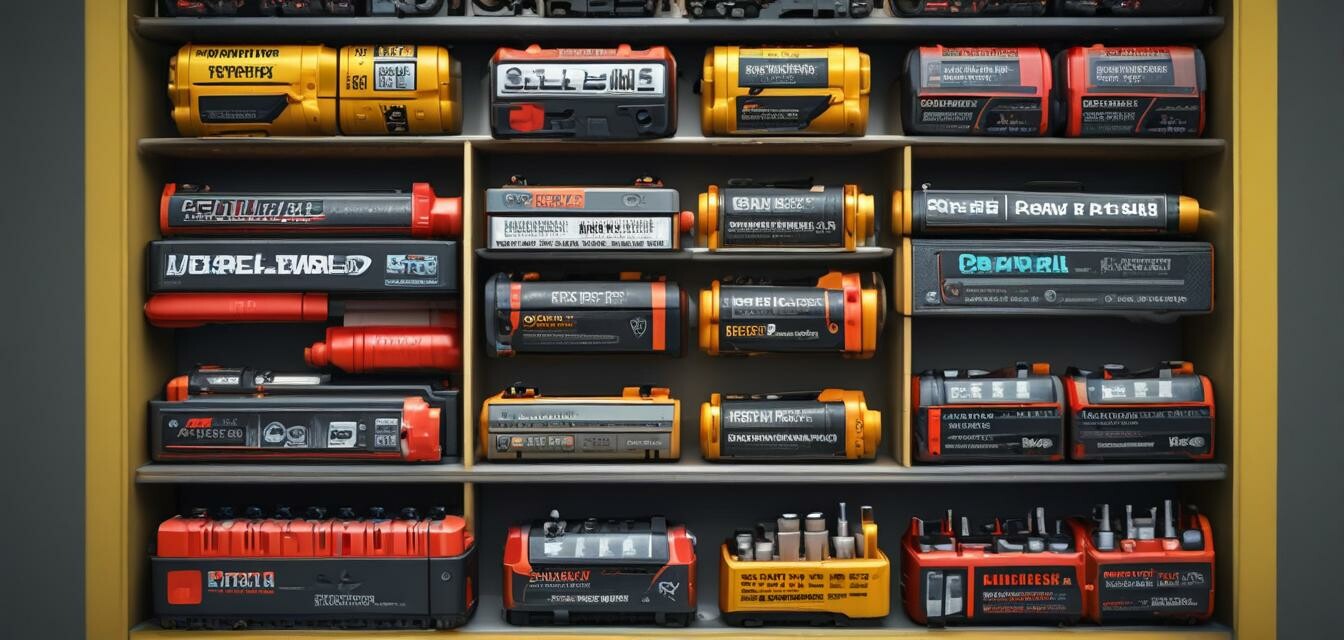
A Buyer’s Guide to Cordless Power Tool Batteries
Key Takeaways
- Understanding the different types of cordless power tool batteries is essential for optimal performance.
- Battery longevity can differ significantly, influencing project efficiency.
- Regular maintenance and proper care extend battery life.
- Choosing the right battery depends on your tool type and usage needs.
Welcome to our detailed examination of cordless power tool batteries. Choosing the right battery can mean the difference between a project coming together flawlessly and frustrations with interruptions. This guide will help you navigate through the various types of batteries available, their longevity, and tips on maintenance to keep your tools running at their best.
Types of Cordless Power Tool Batteries
Understanding the types of batteries available is crucial when selecting your cordless tools. Here’s a breakdown of the most common battery types:
| Battery Type | Voltage Range | Pros | Cons |
|---|---|---|---|
| Nickel Cadmium (NiCd) | 7.2V - 18V |
|
|
| Nickel Metal Hydride (NiMH) | 7.2V - 18V |
|
|
| Lithium-ion (Li-ion) | 7.4V - 36V |
|
|
Battery Longevity
How long your battery lasts isn’t just about the type, but also how it’s used and maintained. Here’s what to consider:
- Usage Frequency: More frequent use may lead to quicker battery depletion.
- Charging Practices: Regularly overcharging or completely depleting batteries can reduce their lifespan.
- Temperature Control: Keeping batteries in extreme temperatures can affect their performance and lifespan.
Extending Battery Life
Implement these practices to maximize your battery's longevity:
- Store batteries in a cool, dry place.
- Avoid leaving batteries in tools for extended periods when not in use.
- Charge batteries before they are completely drained, ideally at about 20% remaining.
- Use the manufacturer’s recommended charger to prevent damage.
Choosing the Best Battery for Your Needs
When selecting a battery, consider the following factors:
- Tool Compatibility: Ensure the battery type is compatible with your tools. Look for specific voltage requirements.
- Your Projects: Determine the type of tasks and frequency to find a balance between capacity and portability.
- Budget: Higher initial costs for superior batteries may lead to savings in the long run through longevity and efficiency.
Tips for Beginners
Beginner Tips
- Start with a lower voltage battery if new to power tools.
- Consider a power tool combo kit for a consistent battery type across devices.
- Read user reviews on the performance and longevity of batteries you are considering.
Conclusion
Choosing the right cordless power tool battery can significantly enhance your experience and efficiency in projects. Understanding the types of batteries, their longevity, and proper maintenance will empower you to make informed decisions. If you're looking for more insights on power tools and accessories, feel free to check our [Power Tool Combo Kits](/products/power-tool-Combo Kits) or explore our [Buying Guides](/blog/buying-guides).
Pros
- Battery variety allows tailored solutions for different tasks.
- Lithium-ion batteries provide superior performance and longevity.
- Portable nature of cordless tools increases usability.
Cons
- Cost of quality batteries can be high.
- Proper care is necessary to extend battery life.
- Battery performance can degrade over time.